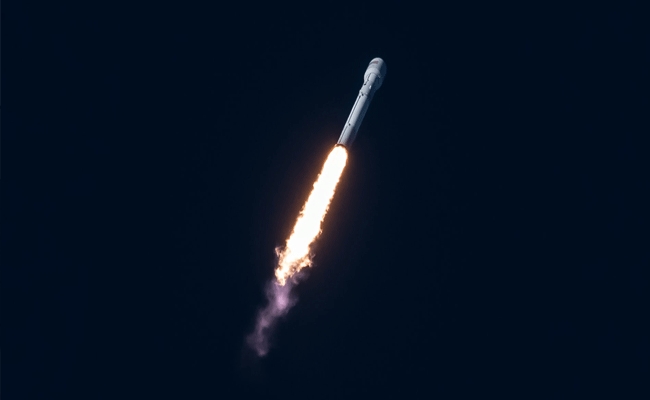Enhanced surface area density to volume ratio results in significantly higher thermal exchange performance, ensuring efficient heat transfer for your critical applications.
Micro-structures and complex internal geometries ensure low pressure drop, enhancing system performance through efficient, smooth fluid flow and optimal heat transfer.
Monolithic designs not only significantly reduce overall weight but also simplify maintenance with fewer parts to manage, streamlining system serviceability.
Morphed topology offers unmatched design freedom. Tailored to fit available spaces, providing flexibility in form factor and enabling seamless integration into a wide range of systems.
Thermal management is a critical factor in aerospace engineering, ensuring the reliability and performance of aircraft and spacecraft within extreme environmental conditions. From commercial airliners to cutting-edge spacecraft, effective thermal solutions are essential for protecting sensitive electronics, maintaining structural integrity, and ensuring the safety of crew and passengers. The importance of minimizing weight, while enhancing efficiency, is particularly crucial in the eVTOL sector, necessitating lighter, more efficient solutions to ensure safety and extend flight ranges.
As the aerospace industry advances with innovations like reusable rockets, hypersonic flight, and deep-space exploration missions, alongside the burgeoning field of electric vertical takeoff and landing (eVTOL) aircraft, the demand for innovative thermal management systems has never been higher.
Our expertise in thermal management technologies supports the aerospace sector, including eVTOL initiatives, in overcoming these challenges, facilitating breakthroughs in efficient propulsion systems, extended spacecraft longevity, and enhanced crew safety, thereby paving the way for new achievements in air and space travel.

Speak with us to explore our thermal solutions for engine cooling, battery cooling, cabin pressurization & air conditioning, avionics cooling, fuel system thermal management, electronic & instrument cooling, electronics cooling, propulsion system cooling, sensor & equipment cooling



Aerospace companies have been quick to identify the advantages of Additive Manufacturing and are adopting it through various aerospace applications. Initially, it allowed for the shortening of development time with form, fit and functional tests. As the technology has matured, aerospace companies are now able to validate additive manufacturing and are building up a database of both materials and process. The notion of certifying airworthy additive manufactured components is now a compelling option.
Conflux develops solutions that reduce the number of parts in sub-assemblies for aerospace companies. By removing part interfaces and combining multiple parts into a monolithic additive manufactured structure, we remove failure points that can result from brazing, welding, bonding or bolting parts together. This can lead to an increase in the mean time between failures alongside an increase in the performance of parts.
Conflux realises faster development cycles through application “sprints” that bring together design engineers, thermo-fluid engineers and AM experts into cross-disciplinary teams. For our customers, this means initial results sooner informing development directions and ultimately faster speed to market in comparison to traditional manufacturing processes. Conflux builds and test parts as part of these “sprints”.
With traditional manufacturing processes, developing topologically optimised designs is extremely challenging due to the complex shapes and the inherent limitations of the conventional manufacturing processes. In contrast, Conflux’s mastery of AM and heat transfer allows for greater flexibility in both design and manufacturing, leading to significant performance advantages.
Being able to design and manufacture lightweight components is a key driver for the adoption of AM in the aerospace industry. Here at Conflux, we have designed and produced lighter weight, higher performing parts to help our customers achieve their weight savings targets without sacrificing performance. Our development of high performance heat exchangers shows that the combination of AM expertise, simulation and design experience, is necessary to exceed customer requirements for weight reduction.

“Conflux is partnering with RFA to embed next generation heat exchange technology into a rocket engine. At Conflux we are establishing ourselves as leaders in the development and commercialization of 3D printed thermal solutions and relevant materials for extreme applications. With support from the Australian Space Agency’s Moon to Mars Grant Supply Chain Capability Improvement grant, we are now applying it to the rapidly expanding space industry.” Dan Woodford, Chief Commercial Officer, Conflux Technology.
Read the press release

Dive into the world of advanced air mobility and electric vehicle thermal management with our comprehensive eBook, "Cooling the Future: Innovations in Electric Powertrain Thermal Management." This essential guide is your key to understanding the cutting-edge technologies shaping the future of EV cooling.
By downloading this eBook, you'll gain insights into:
Enhance your understanding of EV thermal management by downloading our eBook now.

